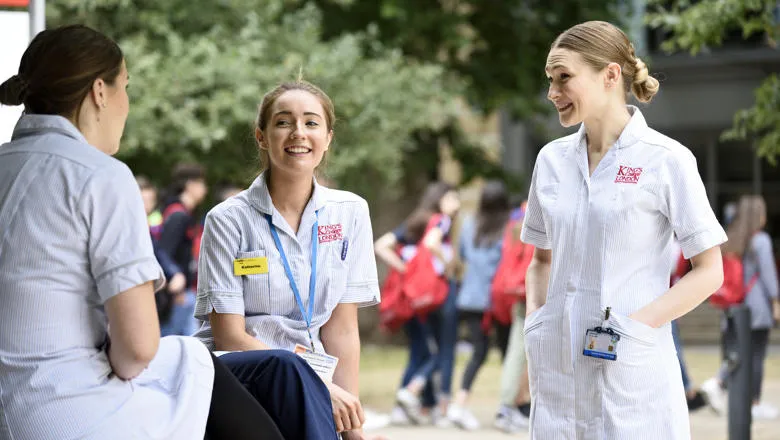Faculty recognised for embedding sustainability principles in its undergraduate and postgraduate programmes.

The Faculty of Nursing, Midwifery and Palliative Care at King's has been awarded established Beacon Site Status by the Centre for Sustainable Healthcare for embedding sustainability principles in its undergraduate and postgraduate programmes. The Faculty is the first in the UK Higher Education sector for nursing and midwifery to receive this esteemed accreditation.
Climate change is a global health threat, and the NHS is responsible for a third of all carbon emissions from public sector services in the UK.
NHS England has set a 'Net Zero' plan to reduce its carbon footprint to net zero by 2040. It is therefore essential for educators of healthcare professionals to raise awareness of how the impact of healthcare on the environment might be reduced and practice become more sustainable.
The Beacon Site Status establishes the Faculty of Nursing, Midwifery and Palliative Care as a leader in the empowerment of staff and students, to design and implement sustainable quality improvement and transformation.
To achieve accreditation, education providers must demonstrate how they embed 'Quality improvement' and 'Sustainable quality improvement' into their curriculum.
Quality improvement is about giving the people closest to issues affecting care quality the time, permission, skills and resources they need to solve them.
Sustainable quality improvement focuses on the prevention of ill health, patient empowerment, creating pathways that reduce waste and switching to low-carbon alternatives.
Work to transform the programmes commenced at King's in 2021, and has been led by the Faculty's Sustainability Leads, Dr Jocelyn Cornish and Melanie Maddison. Initially, the project provided places for 10 members of staff to attend modules on teaching principles of sustainability in quality improvement. By November 2022, these principles were taught in eight modules across programmes including Adult, Mental Health & Children's Nursing, Midwifery, Specialist Community Public Health Nursing and Advanced Clinical Practice.
I think the teaching was very informative. I was surprised by how much the NHS is contributing to the carbon footprint. I never really focused on how we use these things in the hospital that contribute to global warming but during this lecture, it opened my eyes to reducing energy usage, preventing and educating others too.– Student on the BSc Nursing with Registration as an Adult Nurse programme
We are hugely proud of our colleagues in the Faculty of Nursing, Midwifery and Palliative Care who have worked hard to embed sustainability principles in the curriculum across the undergraduate and postgraduate programmes. Healthcare as a sector creates significant carbon emissions and our next generation professionals will be equipped with the skills to address this head on.– Professor Rachel Mills, Senior Vice President (Academic)






